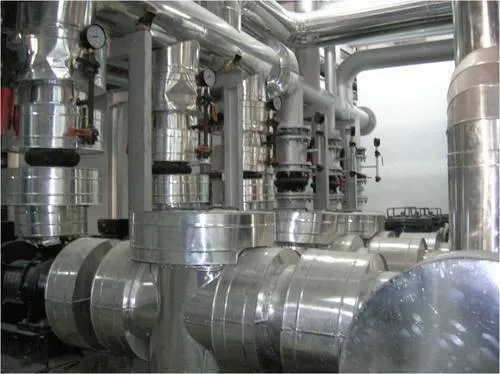Industrial Insulation

Industrial Insulation
Industrial insulation refers to the application of various insulating materials within industrial settings to control heat transfer, maintain specific temperatures, enhance energy efficiency, protect against fire hazards, and reduce noise levels. It involves the installation of insulation materials in industrial facilities such as factories, refineries, power plants, warehouses, and other industrial structures.
Temperature Control: Industrial insulation helps regulate temperatures within industrial settings. It prevents heat loss or gain, maintaining desired temperatures for processes, equipment, and stored materials.
Energy Efficiency: Proper insulation in industrial environments reduces energy consumption by minimizing heat transfer. This leads to cost savings and improved energy efficiency for heating, cooling, and overall facility operations.
Process Optimization: In many industrial processes, maintaining specific temperatures is crucial for efficient operations. Insulation aids in controlling temperature variations, ensuring consistent and optimal working conditions.
Fire Protection: Certain insulation materials have fire-resistant properties, providing a protective barrier against fire hazards and enhancing the overall safety of the industrial facility.
Acoustic Control: Insulation materials also help in reducing noise levels within industrial spaces, creating a better work environment and meeting regulatory noise standards.
Common Industrial Insulation Materials
Mineral Wool: This includes materials like rock wool and slag wool, known for their fire resistance and thermal insulation properties.
Fiberglass: Widely used due to its excellent insulating properties, resistance to heat, and affordability.
Foam Insulation: Materials like spray foam or rigid foam boards offer good insulation, moisture resistance, and versatility in various industrial applications.
Calcium Silicate: Suitable for high-temperature environments, providing fire resistance and thermal insulation in industrial settings.
Ceramic Fiber: Ideal for high-temperature insulation needs, offering excellent thermal stability and resistance to thermal shock.


Benefits Of Industrial Insulation
Energy Efficiency: Reduces heat transfer, leading to lower energy consumption and reduced operational costs. Cost Savings: Efficient insulation translates to financial savings by conserving energy and minimizing utility bills. Temperature Control: Maintains consistent temperatures for processes, equipment, and storage areas, improving efficiency. Process Optimization: Ensures smooth and reliable industrial processes, enhancing productivity. Safety and Fire Protection: Acts as a barrier against fire hazards, enhancing workplace safety. Environmental Impact: Lower energy consumption contributes to reduced environmental footprint. Noise Reduction: Minimizes noise levels for a more comfortable work environment.
Long-Term Durability: Protects equipment and infrastructure, reducing maintenance costs and increasing longevity.
